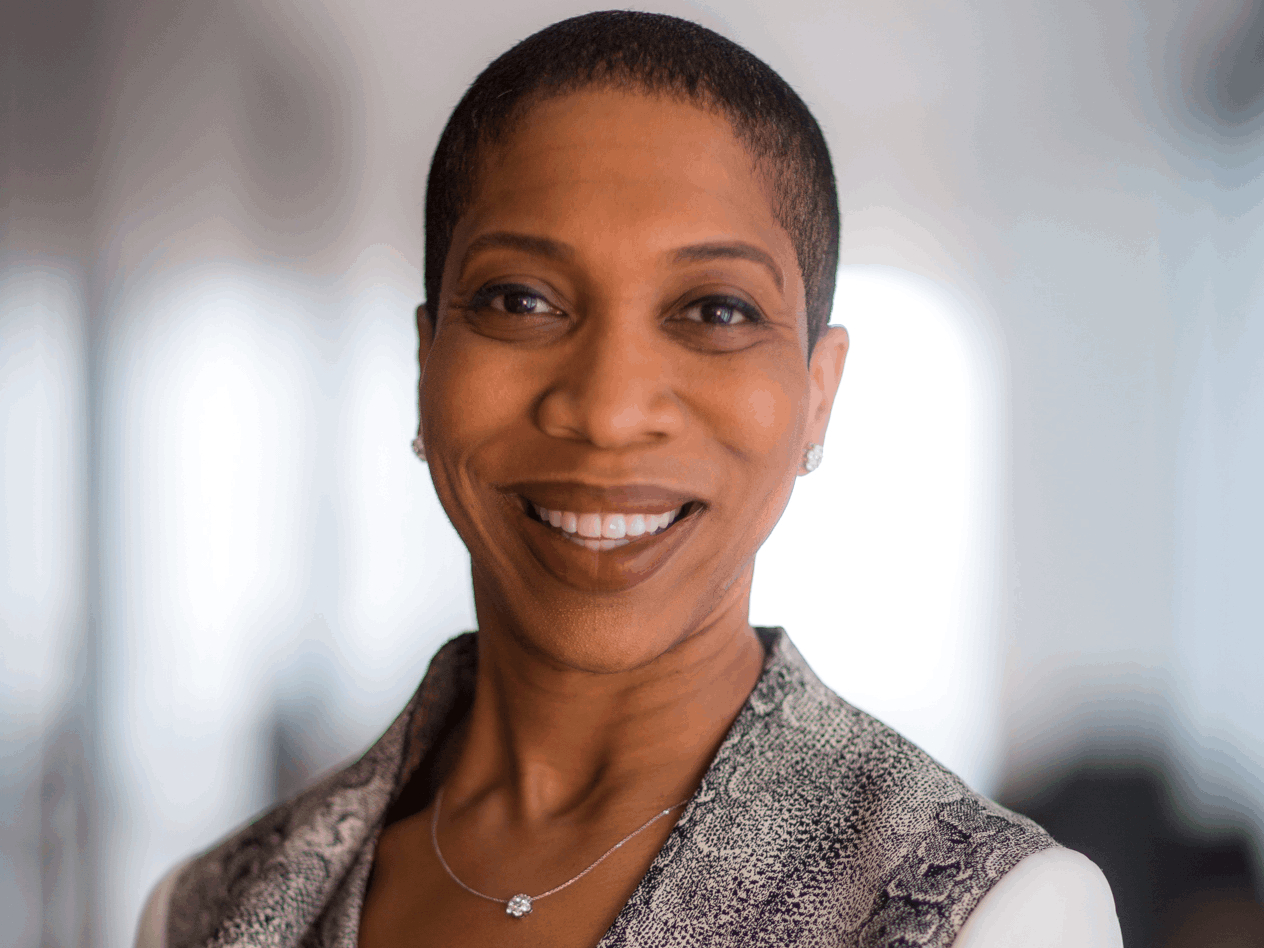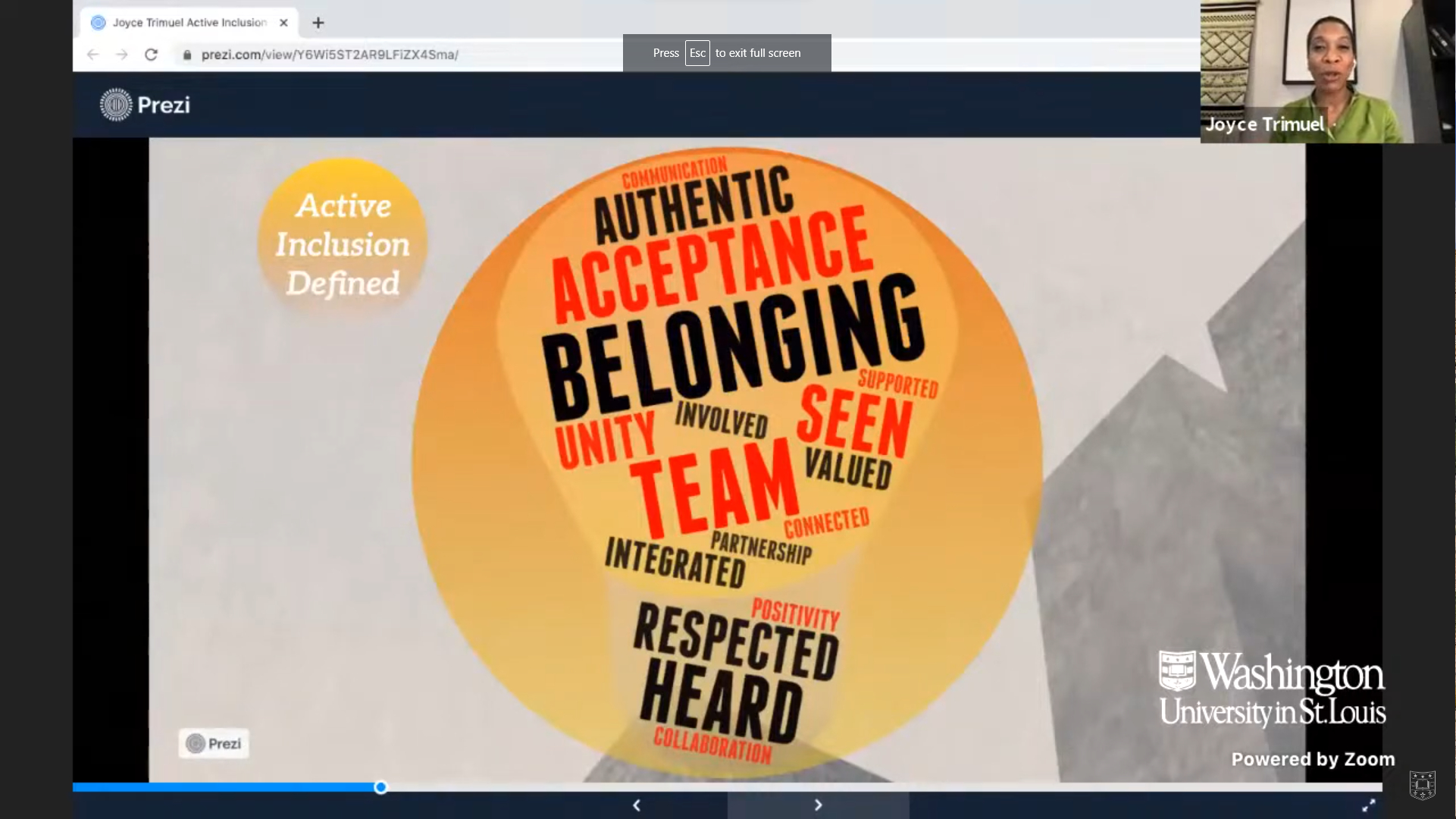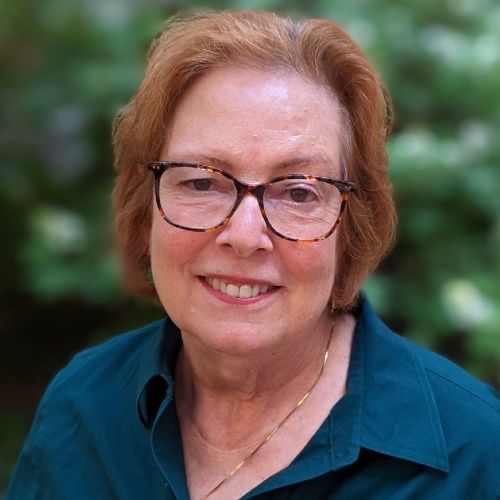Olin alum: Active inclusion is ‘more than a seat at the table’
- November 6, 2020
- By Jill Young Miller
- 3 minute read

You’re excited about dining at your favorite restaurant. You go to this restaurant only on special occasions, and you’ve made your reservations.
You know that everything—the meal, the wait service, the ambiance—is going to be fantastic.
So now you’re at your favorite restaurant. You’re at the table.
But the wait service is poor. Your entrée is mediocre. Nothing is as you expected.
You’re at the table. But that’s not enough. Olin alum Joyce Trimuel, a career strategist and professional speaker, likened the experience to how some people can feel in the workplace.
You’re at the table, but you’re not welcome.
“Our conversation today is going to be on active inclusion with the focus of it being more than a seat at the table,” she said. “It’s really about having a voice and being able to contribute in a fully engaged way.”
Over recent months, diversity, equity and inclusion have become top priorities in many organizations. For Olin’s October 27 Leadership Perspectives event, Trimuel, EMBA 2016, discussed the importance of active inclusion and how it extends well beyond representation in “Active Inclusion: More Than a Seat at the Table.” She also addressed collective and individual responsibility for creating an inclusive culture—and the downside of not doing the work.
“I want individuals and organizations to leave this conversation more informed about what active inclusion is and commit to doing one or two things different and better so that we can all foster more inclusive cultures.”
‘If I just did a good job …’
Trimuel is a first-generation college graduate who grew up in Chicago in a working middle-class family. Her dad owned a small trucking company, and her mom was the office manager.
Trimuel had Iittle exposure to corporate America “beyond just having the desire to work downtown,” she said. “I wanted to wear nice suits and pretty dresses, and I wanted to carry a black Coach briefcase. That was my ideal of what the workforce and what corporate America was all about.”
She said she was grateful for programs like Inroads, which afforded her the opportunity to intern for two summers during her undergraduate education. It gave her perspective, access and exposure to a world that she knew little about, she said.
But “I was very naive in thinking that if I just did a good job, that would be enough to keep my career going and moving forward.”
She didn’t understand the nuances and the politics that oftentimes exist in the workplace.
Luckily, leaders saw potential in her and ultimately became advocates for her. They helped to propel her career forward.
“It’s more than just physically being there,” she said.
Full engagement
Active inclusion exists where everyone has a sense of belonging and feels seen, valued, respected and heard.
“It’s really about having a voice and being able to contribute in a fully engaged way.”
And that, Trimuel pointed out, is good for business.
If, for instance, you work in a human resources department, you pay attention to attrition and employee retention.
“Even if you are a consumer goods manufacturer, you’re thinking about customer loyalty, you’re thinking about employee loyalty.”
Are you creating the environment where individuals are bringing their best ideas, their best authentic selves, so they’re helping to solve problems for the company internally and externally? Are individuals able to authentically communicate? Is that welcome and encouraged?
Consider meetings at your organization. Perhaps a handful of people are actually leading the conversation. “I hate to use the word dominating the conversation, but they tend to have a louder voice and louder presence when it comes to the conversation,” Trimuel said.
“When you’re thinking about active inclusion, there are moments in time for us individuals to actually advocate for someone else and perhaps, you know, pause the conversation and open the floor for maybe those who have not been able to jump in and actually offer a point of view.”
Why is that important?
“We need all of the perspectives.”
DEI DIY
Creating a diverse, equitable and inclusive environment
Media inquiries
For assistance with media inquiries and to find faculty experts, please contact Washington University Marketing & Communications.
Monday–Friday, 8:30 to 5 p.m.
Sara Savat
Senior News Director, Business and Social Sciences

